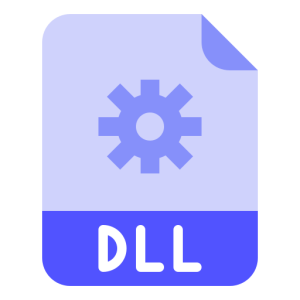Description
d3dcompiler 47.dll
d3dcompiler 47.dll is a dynamic link library (DLL) file that is an important component of the DirectX Runtime, specifically the DirectX Shader Compiler. It is utilized by video games and other applications that rely on rendering graphics using the DirectX API.
This DLL file is responsible for compiling and processing shaders, which are programs that control the behavior and appearance of graphics in a video game or application. The d3dcompiler 47.dll contains a collection of functions and resources required for shader compilation, optimization, and validation.
By using d3dcompiler 47.dll, developers can effectively optimize shaders, improving the performance and visual quality of the application. This DLL file is a crucial part of the DirectX Runtime as it enables efficient and accurate shader compilation, ensuring that graphics are rendered as intended on a Windows operating system.
Purpose and Functionality
The d3dcompiler 47.dll serves several essential purposes in the rendering of graphics using the DirectX API. These include:
- Shader Compilation: The DLL file is responsible for parsing and compiling high-level shader code into a format that can be understood and executed by the graphics processing unit (GPU). It ensures that shaders are correctly translated and optimized for efficient rendering.
- Shader Optimization: d3dcompiler 47.dll carries out optimizations on compiled shaders, improving their performance and reducing the processing overhead on the GPU. This results in smoother and more efficient graphics rendering.
- Shader Validation: The DLL file performs validation checks on shaders to ensure they adhere to the syntax and requirements of the DirectX API. It helps identify and resolve any syntax errors or compatibility issues that could impact graphics rendering.
- Shader Debugging: d3dcompiler 47.dll provides debugging capabilities for shaders, allowing developers to identify and rectify issues that may arise during the shader compilation process. This helps improve the stability and quality of graphics rendering.
Common Use Cases
The d3dcompiler 47.dll is primarily used in the following scenarios:
- Game Development: Video game developers rely on d3dcompiler 47.dll to compile and optimize shaders for realistic and visually appealing graphics. It is a vital component in creating immersive gaming experiences.
- Graphics Rendering Applications: Applications that heavily rely on graphics rendering, such as computer-aided design (CAD) software or 3D modeling applications, utilize d3dcompiler 47.dll to compile and manage shaders for accurate and efficient graphic representation.
- Game Emulation: Emulators that aim to replicate and run console games on a computer often require d3dcompiler 47.dll to ensure proper shader compilation and rendering, accurately mimicking the graphics of the original game.
It’s important for users to ensure that they have the necessary DirectX Runtime installed on their systems to access the functionality provided by d3dcompiler 47.dll. Additionally, developers may include the required redistributable packages along with their applications to ensure that end-users have the necessary DirectX components.

